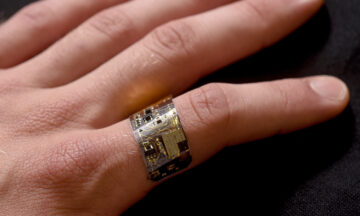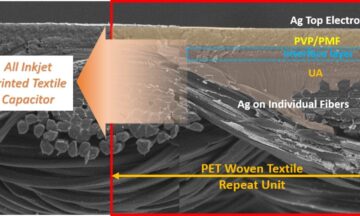
Recent Posts


North Carolina State University Industry Expansion Solutions Receives $5 Million Grant from the Department of Defense
On August 13, 2021, the Department of Defense’s Office of Local Defense Community Cooperation (OLDCC), following a competitive selection process, announced that the state of North Carolina was selected to receive the designation as one of five “Defense Manufacturing Communities” in the nation during FY2020.
Using Liquid Metal to Turn Motion into Electricity – Even Underwater
Researchers at North Carolina State University have created a soft and stretchable device that converts movement into electricity and can work in wet environments.
NC-COMP to Offer Human Performance Tech and Services to Military Organizations
A newly launched consortium led by RTI International and comprised of more than 25 North Carolina-based academic, industry, nonprofit and state government organizations will bring together expertise from a variety of fields to offer world-class human performance solutions to the Department of Defense (DoD).
Raleigh medtech VitalFlo lands $2.14M, aims to scale, add jobs
VitalFlo, a predictive medicine platform that emerged from patient care and research experiences of advisors Dr. Michelle Hernandez and Dr. David Peden of the University of North Carolina at Chapel Hill School of Medicine and colleagues at North Carolina State University, has raised $2.14 million in seed funding in a round led by Geekdom Fund.
ASSIST Medical Advisor Peden Named Inaugural Editor-in-Chief of New AAAAI journal
David Peden, MD, past president of the American Academy of Allergy, Asthma & Immunology, will serve as the academy’s first editor-in-chief of The Journal of Allergy and Clinical Immunology: Global.
Biochemical Sensor Researcher Makes Tech Review’s List of Top Young Innovators
Amay J. Bandodkar, an assistant professor of electrical and computer engineering at North Carolina State University, has been named one of MIT Technology Review’s “Innovators Under 35” for his work on developing wearable biochemical sensors.
Inkjet Printing Shows Promise As New Strategy For Making E-Textiles, Study Finds
In a new study, North Carolina State University researchers demonstrated they could print layers of electrically conductive ink on polyester fabric to make an e-textile that could be used in the design of future wearable devices.
